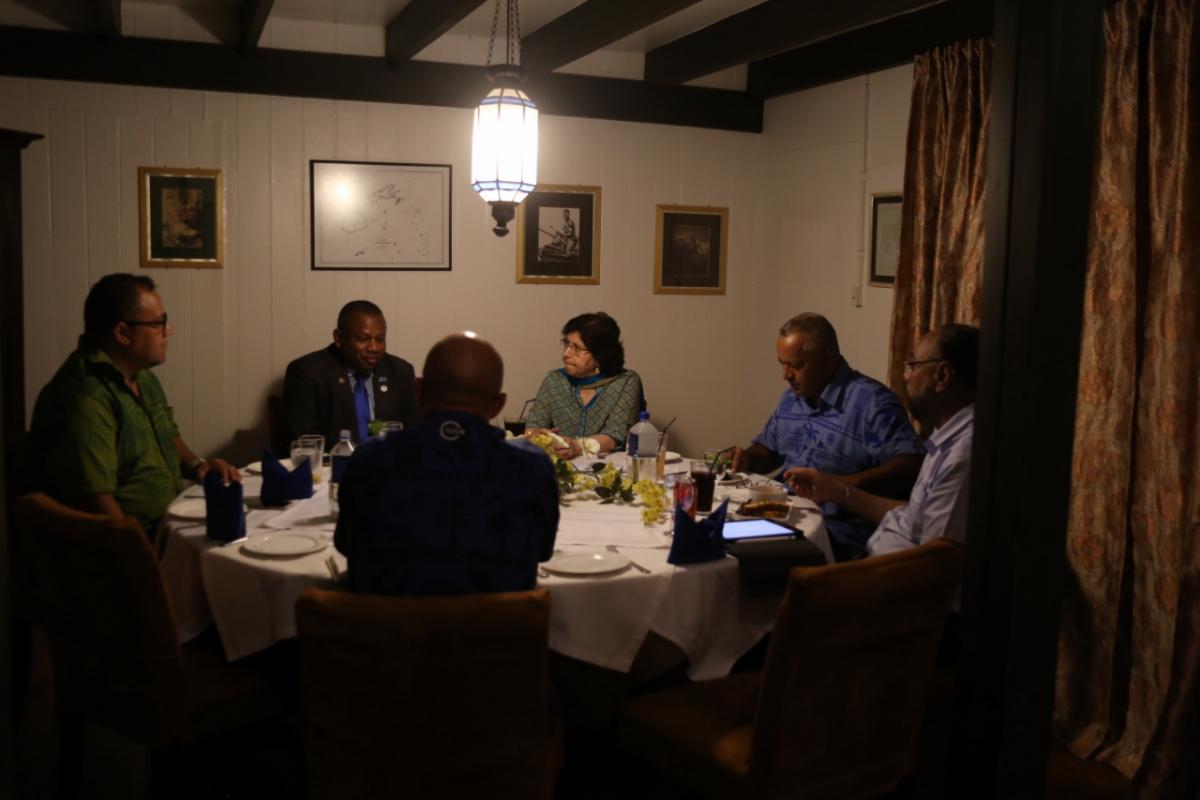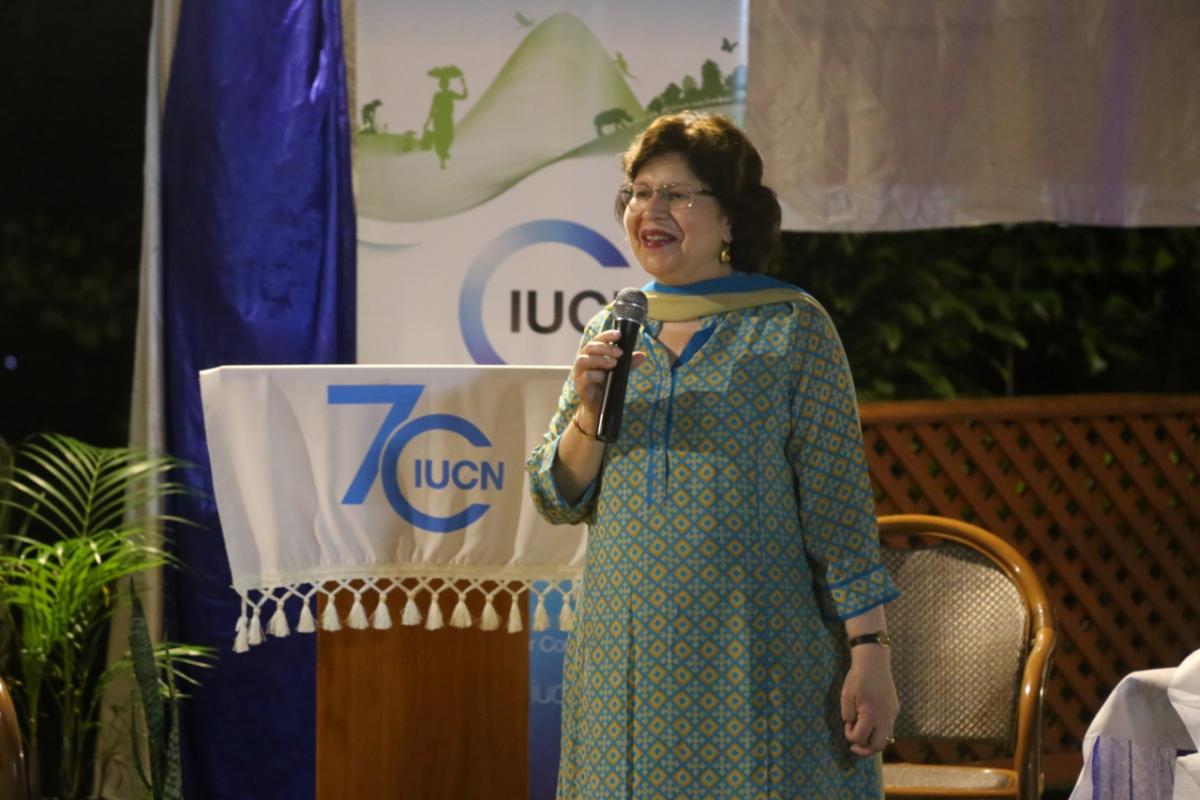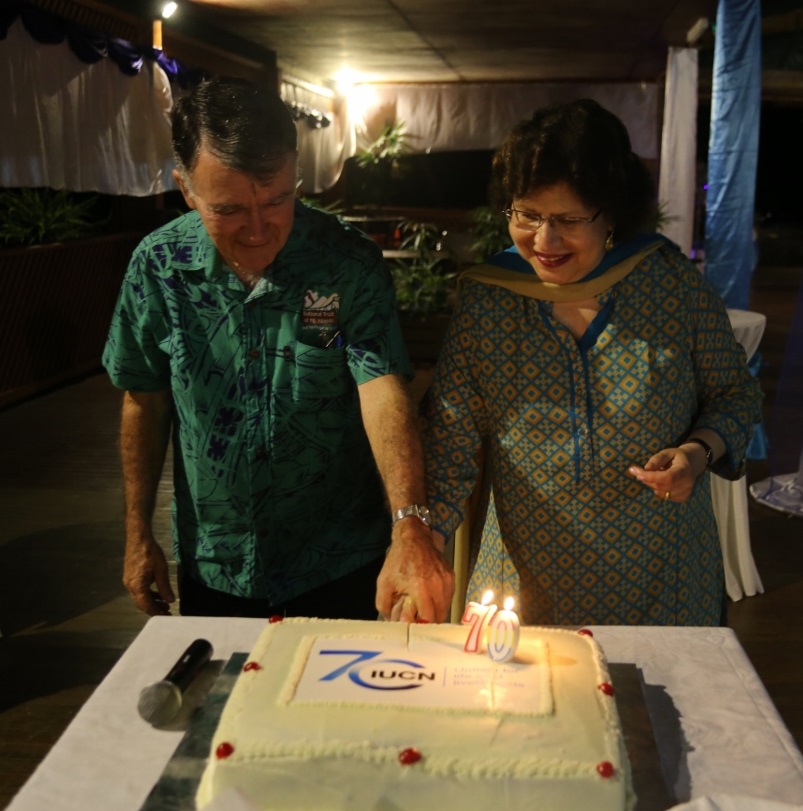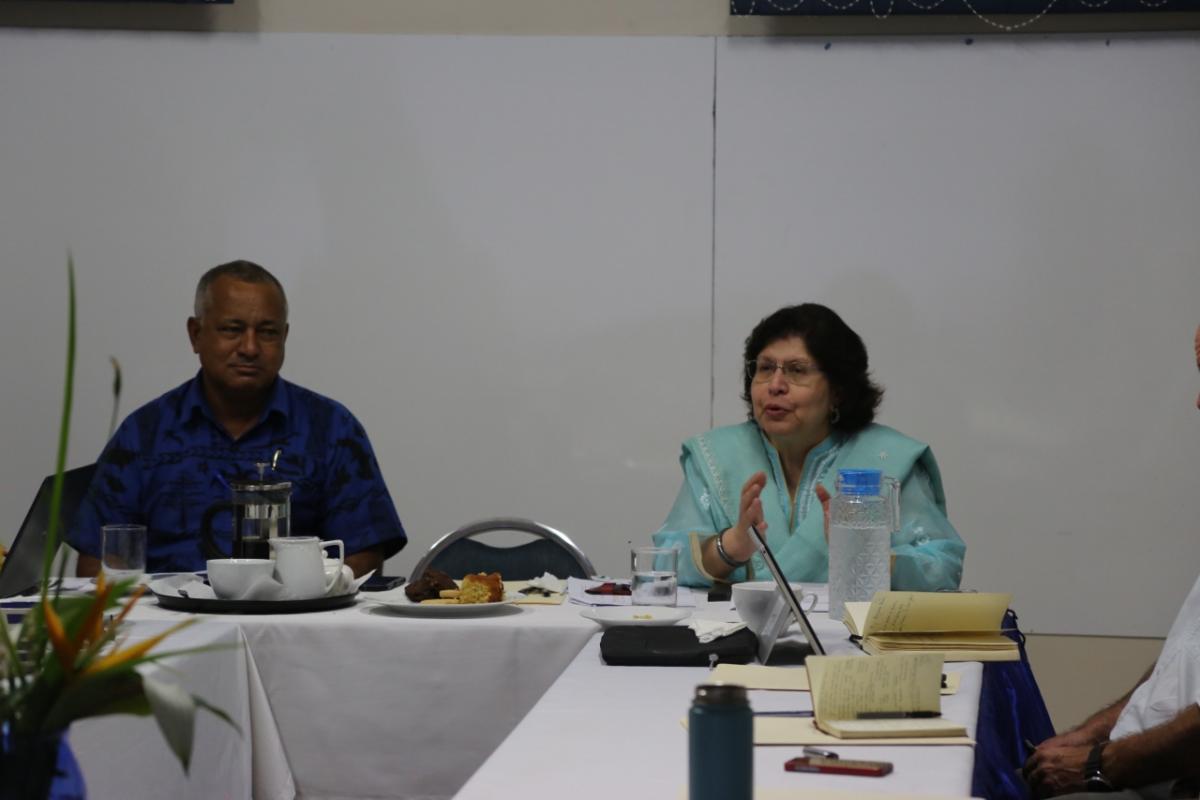Mangroves for the Future shares lessons learned at Fiji climate change workshop
From 5 to 8 March, IUCN hosted the Mangrove Ecosystems for Climate Change Adaptation and Disaster Risk Reduction workshop in Suva, Fiji, as part of its 70th anniversary celebrations taking place throughout 2018. The event was co-hosted by the Global Island Partnership (GLISPA), the IUCN Commission on Ecosystem Management (CEM), and Mangroves for the Future (MFF). Participants discussed opportunities for moving beyond pilot initiatives and scaling up mangrove conservation and restoration.
Fiji's Permanent Representative to the United Nations (UN), Ambassador Peter Thompson, who is also serving as the UN Special Envoy for Oceans, opened the event with a short anecdote about his childhood in Nasese Creek’s mangrove forests (which have since been cleared for urban development) and a call to immediate action.
During the workshop, participants – including the governments of Fiji, Kiribati, the Solomon Islands, Tonga and Vanuatu; IUCN; and MFF – had the opportunity to exchange knowledge and their own experiences in mangrove conservation and restoration.
MFF Programme Coordinator Steen Christensen; Dr V. Selvam, Executive Director at M S Swaminathan Research Foundation (MSSRF); and Dr Tahir Qureshi, IUCN Pakistan Senior Advisor for Coastal Ecosystems shared lessons learned from projects in Pakistan and India. Radhika Murtu, Director of IUCN’s Global Ecosystem Management Programme, shared information on the evolving work with nature-based solutions to address societal challenges, an approach that aims to capture and scale up the benefits of conservation to human well-being.
The workshop included a field trip to My Suva Park to study mangrove ecosystems in the Suva area. Participants greatly appreciated the facilities of the park, along with its natural beauty and tranquility. “Such initiatives are great examples of how green spaces can be integrated into urban landscapes, as a win-win solution for people and nature to co-exist,” said Kabure Takaria, Biodiversity Conservation Officer at the Environment and Conservation Division of Kiribati’s Ministry of Environment, Lands and Agriculture Development.
Watch: UN Special Envoy for Oceans Peter Thompson welcomes workshop participants
Mangroves for the Future (MFF) is a partnership-based regional initiative which promotes investment in coastal ecosystem conservation for sustainable development. MFF focuses on the role that healthy, well-managed coastal ecosystems play in building the resilience of ecosystem-dependent coastal communities in Bangladesh, Cambodia, India, Indonesia, Maldives, Myanmar, Pakistan, Seychelles, Sri Lanka, Thailand and Viet Nam. The initiative uses mangroves as a flagship ecosystem, but MFF is inclusive of all types of coastal ecosystem, such as coral reefs, estuaries, lagoons, sandy beaches, sea grasses and wetlands. MFF is co-chaired by IUCN and UNDP, and is funded by Danida, Norad, and Sida and the Royal Norwegian Embassy in Thailand.







